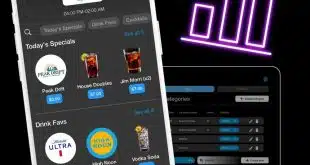A software program that works with point-of-sale terminals allows small merchants to process card transactions at the lowest available interchange rates and arms them with cost-saving technology that up to now was available only to large retailers, according to the independent sales organization that introduced the technology this week. “Tier Three and Tier Four merchants are the one market that's really primed for this,” says Henry Helgeson, president and co-chief executive of Merchant Warehouse, referring to the card-volume tiers used by the card networks. “That [market] didn't have access to this technology because of the cost and complexity of putting it on a POS terminal.” Merchant Warehouse, an 11-year-old, Boston-based ISO that serves more than 55,000 merchants, hopes its BINSmart Cost Manager system will help its sales agents sign merchants that had been resisting because of price. With BINSmart available, “We have a couple [agents] looking at leads that were closed to them because of the pricing,” says Helgeson. He says the technology has also found some appeal with franchisees and small chains. “That's a nice unexpected surprise,” he says. “It's surpassed my expectations, and I have high expectations.” So far, “a handful of beta merchants” are live on the service, he says. Merchants that have a Hypercom T4220 terminal, the device BINSmart currently works with, can have the device reprogrammed with BINSmart at no charge. For February, the terminal and PIN pad is priced at $199. Starting March 1, the price rises to $299. BINSmart will ultimately become available on a wider array of POS devices, Helgeson says. With BINSmart, the terminal interrogates a database of interchange tables built by Merchant Warehouse on its servers. If a transaction would qualify for a lower rate with an additional piece of information?for example, a PIN for a debit card or a zip code for a keyed transaction?the server returns to the terminal a prompt for that data. The process takes less than a second and occurs before authorization. On commercial cards, the system will prompt for so-called Level 2 data, such as tax codes, which are necessary to qualify for the lowest available rate. “We took everything we know about interchange and the networks and crammed it into this terminal,” Helgeson says. The key to the system, says Helgeson, is that it allows the merchant to enter crucial data before authorization, maximizing the chance to save money on the transaction. Adil Moussa, an analyst with Boston-based research firm Aite Group LLC, says this makes BINSmart unique. It's not uncommon for acquirers to check transactions in batch to look for missing information that might qualify them for lower rates, but by then it's often too late to get the data from the customer, who is long gone. “It sounds like a much-needed product for merchants,” Moussa says. The service, for which Merchant Warehouse has applied for a patent, also arms small merchants with a cost-saving technique large merchants have bought or built at significant cost, and then typically only to prompt for PINs on debit cards, Helgeson adds.
Check Also
Eye on Point of Sale: PushX Hospitality Debuts; SurgePays Completes PAX Integration
Hospitality platform provider PushX Inc. will launch its new mobile-payments and offers platform with a …




